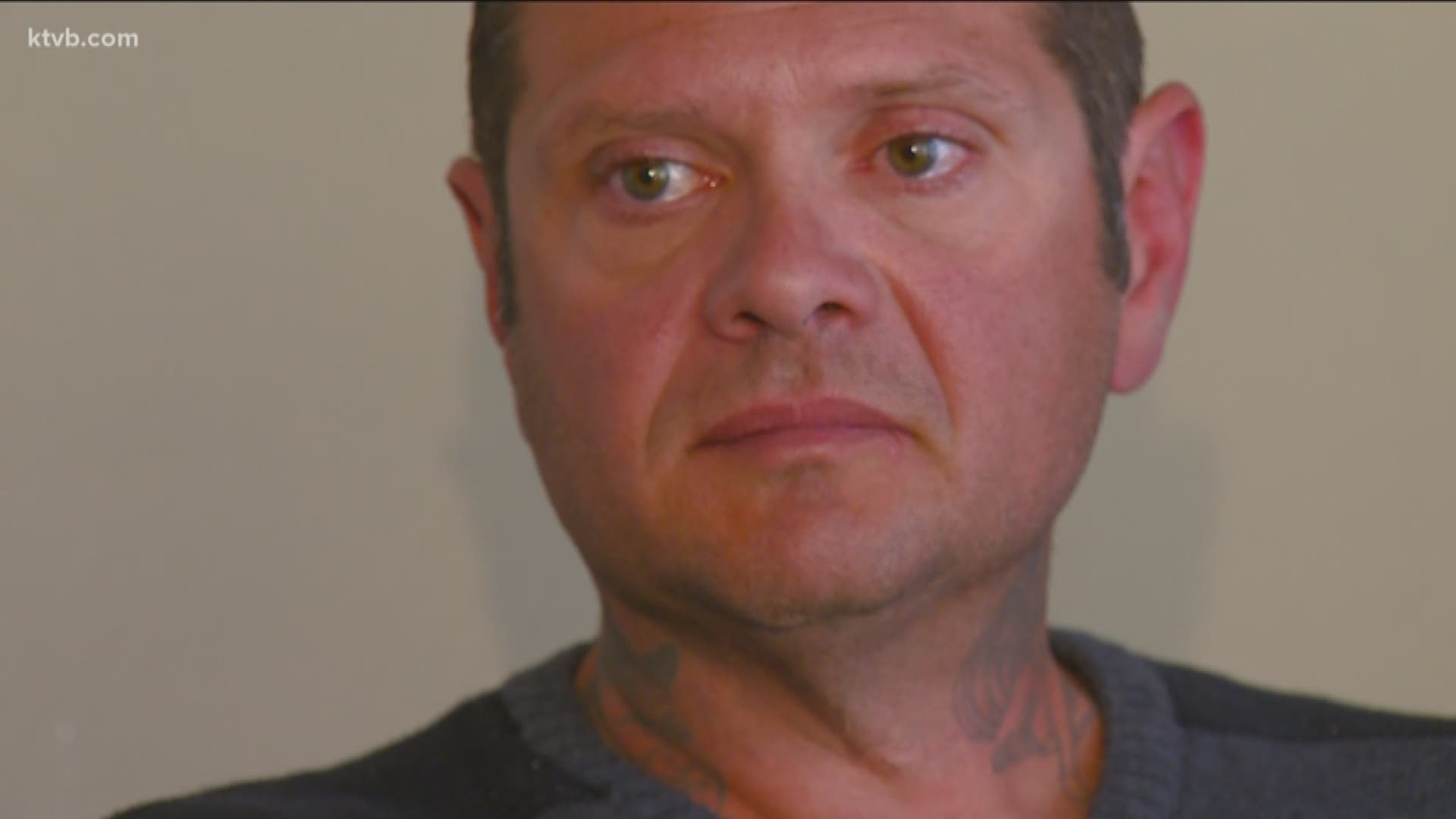BOISE - 17 percent of Idaho high school students now say they've tried a prescription drug, according to a recent report from the Idaho Office of Drug Policy. The problem doesn't just affect teens, addiction can hit anyone.
KTVB is sharing the stories of three recovering opioid addicts.
They agreed to open up about their deeply personal and painful struggles because they're tired of seeing the pain caused by opioid abuse. All three said if their story can help save just one person, then it was worth it to come forward.
"My first supplier was actually one of my neighbors who took narcotics for back pain," Monica Forbes said. "She was a suburban mom, I was a suburban mom. Our kids went to school together."
Forbes has overdosed on opioids two times. She believes she's alive today for one reason.
"We've got to start talking about this elephant in the room," Forbes said. "That the shame and the stigma associated with addiction, especially opioid addiction, are just as deadly as the disease itself."
13 years sober, Forbes is now the director of PEER Wellness Center in Boise, one of eight recovery community centers in Idaho. The state began opening the centers in 2015 in response to the opioid epidemic.
"We are seeing a significant increase in opioid cases," Forbes said. "In just the last two months we've lost two of our peers to accidental opioid overdose. And we've had three more that were revived with Narcan."
Data collected at PEER Wellness Center indicates some addicts first used opioids as early as 11- to 14-years-old.
"Yeah, you see a lot of that going around the schools," said Rebecca Lee, who was addicted by age 17.
"I didn't know anything about it," Lee said. "I didn't know how addictive it could be."
Danny Wilcox was just 16 years old when he first used.
"It seemed to have everything that I didn't have, like warmth," Wilcox said. "It felt like, huh, it felt like if your mom, if your mom really liked you and she hugged you. That's what it felt like at the time. And we didn't have that, my brother and I."
Wilcox and Lee are now in recovery and getting support services at PEER Wellness Center. 2,200 people a month are helped by the center in Boise each month. Forbes says most addictions begin innocently.
"These are not people who went out partying or gave into peer pressure," Forbes said. "The doctor prescribed it to them for a valid reason and when that reason was over with they didn't get the adequate support and direction and help that they needed. So they end up going and finding it where they can, and that's how we're seeing a migration from opioids to heroin and to street drugs because that help is not made available at that point."
A study released this year shows opioid dependence can begin in as little as a few days.
"None of us grow up and say, 'You know I want to be addicted to drugs and I want to hurt people when I grow up.' We don't want to do that," Lee said. "It's the drugs that change our dependency and our minds."
"There are people who are going to work everyday and keeping their homes together but inside they're a wreck because of the addiction," added Wilcox.
It's difficult to know just how many people are struggling with opioid addiction in the Treasure Valley. Not everyone admits it. Not everyone is surveyed.
"We're desperately trying to keep up with the demand and get people into whatever treatment options and support are available," Forbes said.
There aren't enough treatment centers in the Treasure Valley to keep up with the demand. According to Forbes, waiting lists at most detox facilities range from 7 to 30 days.
"In order for us to really address this, we've got to open our hearts and our minds and realize these are people," Lee said. "No matter what they do in their addiction, whether they hurt people, they don't mean to. We've got to help them with no judgment."
In April, the State of Idaho began a five-year strategic plan to respond to the opioid epidemic.
Part of the plan includes educating patients about the risks before they're given their first opioid prescription, and to increase access to treatment centers.
Forbes expects this issue come up in the 2018 Idaho Legislative session, with funding proposals for community recovery centers. There is also talk of legislative action to improve opioid prescription practices.
If you are someone you know needs help, contact PEER Wellness Center at (208) 991-3681. They are located at 963 S. Orchard Street, Suite 101, Boise. You can find them online here. Free services include peer-led support groups, mentoring, access to community resources, social activities, volunteer opportunities.

